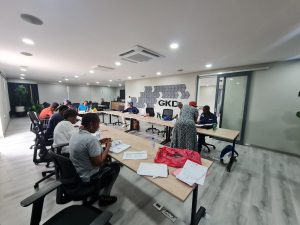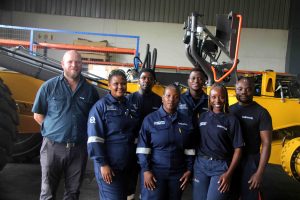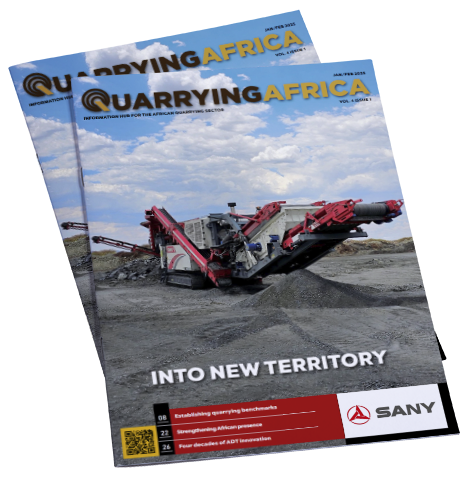Built on a bedrock of specialised expertise and market experience, leading screening solutions provider, Sandvik Rock Processing has demonstrated what can be achieved with cutting-edge skills. Lylian Kgatla, Human Resources manager at Sandvik Rock Processing South Africa explains why an ongoing commitment to skills development is vital in achieving product excellence and organisational transformation.
The company was formed earlier in the year following the acquisition by Sandvik of Kwatani and Schenk and is steadily growing its customer footprint with the value of its offerings being readily recognised by customers in South Africa and across the globe. This reputation based on excellence in designing, manufacturing and supporting its screening solutions is being maintained through continuous upskilling, says Kgatla.
“What is also important has been to make sure that our training efforts are well aligned with the company strategy as well as with employment equity and Black Economic Empowerment (BEE) requirements,” she says. “Most of our customers are in the mining sector, and in South Africa this means that they have objectives in terms of the Mining Charter – which their supply partners must help them to meet.”
Meeting the technical and operational expectations of its customers remains at the heart of Sandvik Rock Processing South Africa’s training programmes – which range from apprenticeships and learnerships to university bursary schemes. Apprentices are selected and supported to pursue careers such as boilermakers, fitters and millwrights; the apprenticeship programme lasts three to four years, and is conducted in collaboration with the Manufacturing, Engineering and Related Services Sector Education and Training Authority (Merseta).
“These are key skills for our industry, and need to be supported by all stakeholders to maintain the necessary expertise for the country’s industrial growth,” she says. “The quality of training is ensured by the unit standards which are in place for each area of expertise.”
Sandvik Rock Processing South Africa also supports external learnerships for unemployed youth, working with outside training organisations that provide the theory – while the practical experience is gained by exposing these candidates to the company’s extensive manufacturing facility in Kempton Park. The number of youth supported by the company in this programme has risen exponentially over the years.
“This training makes us feel very proud, as we have been able to absorb some of the candidates into the company – and I look forward to watching their progress,” she says. The learners are previously disadvantaged, unemployed learners who may not have yet earned a matriculation certificate. The programme advances them through NQF Levels 1, 2 and 3 so that they can achieve a matric-level qualification for their further studies. She highlights that the skills they learn open the door to employment after achieving NQF Level 3.
There is also a bursary programme focused on disciplines relevant to Sandvik Rock Processing south Africa to fund students in scarce and critical fields such as mechanical, design and process engineering. Where possible, qualified students are also brought into the business and exposed to the various aspects of Sandvik Rock Processing’s operation – often growing into successful careers there.
Kgatla highlights how crucial it is for mentoring and coaching to be an integral aspect of the employment and growth process. While many organisations expect new employees to ‘sink or swim’, she argues that retaining and building expertise demands a more formal and committed approach to nurturing staff.







